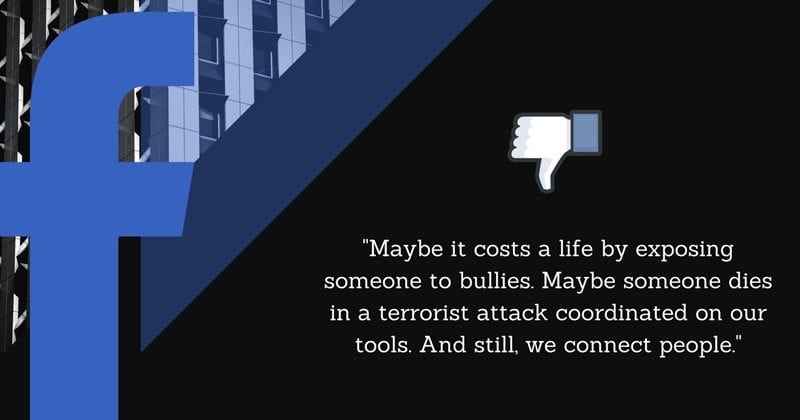Riding on the problem is a memo that only worsens the situation: in it, Andrew “Boz” Bosworth implies that it is okay to expose the user if that makes the social network grow. Known for being outspoken and not measuring words, Bosworth is a high-ranking member of the social network giant Facebook and currently serves as vice president of the company’s virtual reality division. He knows how few behind the scenes and plans the company, after all, went to work on Facebook in 2006 when the social network was still strongly focused on connecting students. Getting involved in controversial affairs is nothing new to Bosworth. By 2015, for example, he had to deal with complaints about the decrease in the reach of Facebook pages, which made administrators spend more money to promote content released on them. But nothing comes close to a memo from June 2016 that circulated internally with the title “The Ugly” and ended up getting to BuzzFeed. In the document, Bosworth says the good part of the social network giant Facebook is connecting people: “Maybe someone will find love. Maybe we save the life of someone about to commit suicide.” But he also mentions a downside: “It may cost a living by exposing someone to bullying. Maybe someone dies in a terrorist attack coordinated with our tools.” “The ugly truth is that we believe in connecting people so deeply that anything that allows us to do so is indeed good. That’s why everything we do to grow is justifiable. All questionable import practices for contacts. All the subtle language that helps people to be found by friends. All the work we do to bring more communication. I know a lot of people do not want to hear this. But make no mistake, these growth techniques helped us get here,” says another passage. https://twitter.com/boztank/status/979478961582325760 The leaked document could not have come at a worse time, so much so that Bosworth himself, using Twitter, acknowledged the authorship of the text, but he made it clear that he did not agree with what he wrote there. He justified the content of the memo saying that the text was meant to provoke officials and generate debate around a complex subject. Mark Zuckerberg took a similar stance by describing Bosworth as a “talented leader who says many provocative things” and saying that most Facebook employees (including himself) did not agree to the memo. “We never believe that the ends justify the means,” he added. However, questions about privacy have been so frequent in the social network that it is difficult for public opinion to believe in this discourse. However, the social network giant Facebook has definitely updated the crisis definitions. So, what do you think about this? Simply share all your views and thoughts in the comment section below.
Δ


